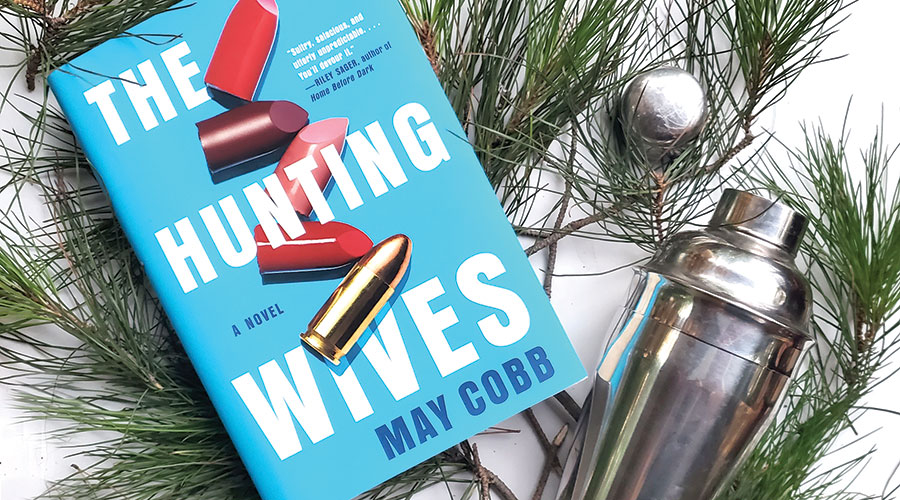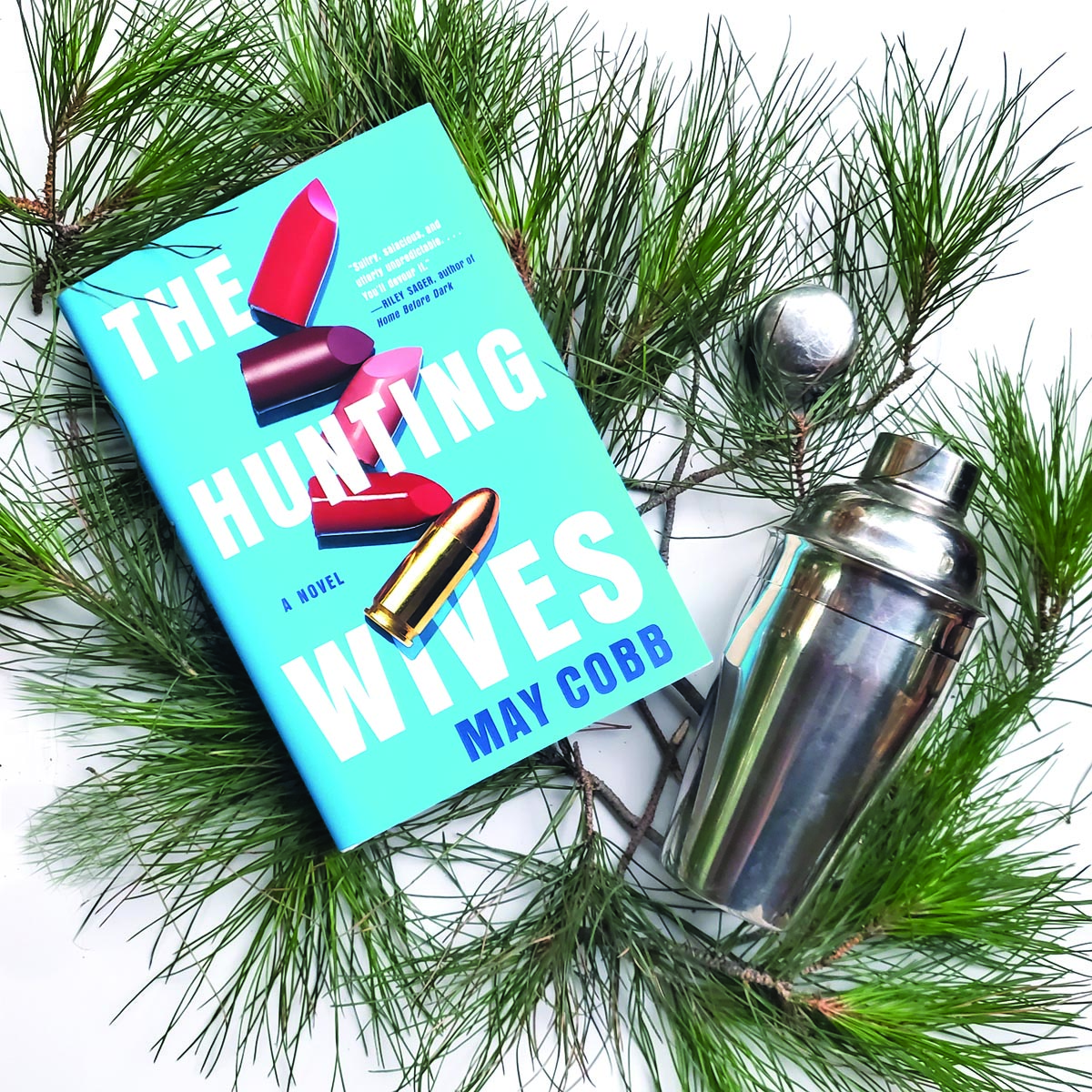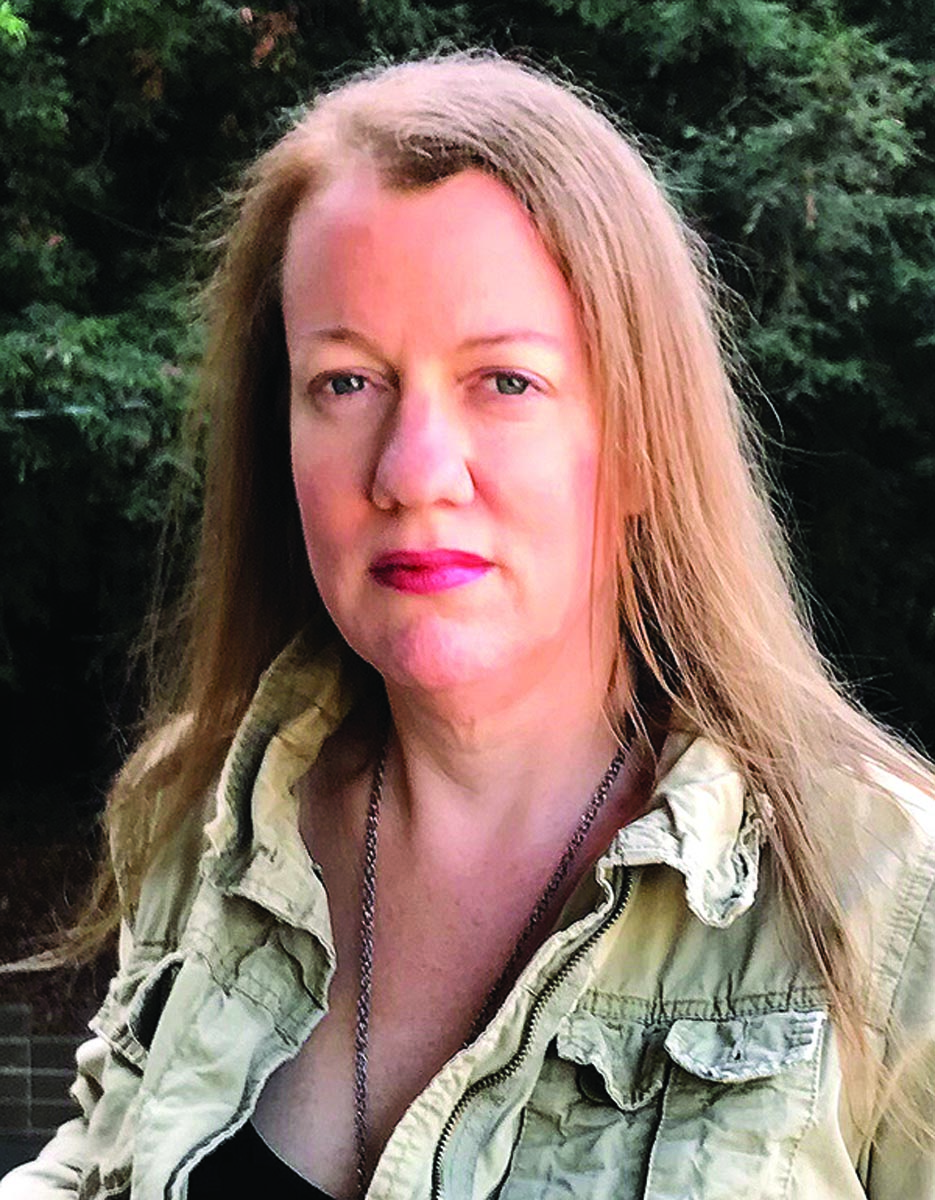
Shoot To Thrill
By June Naylor
Photos by Meda Kessler; author image courtesy of Chuck Scherrer
East Texas provides a sultry backdrop for this seductive novel from native Texan May Cobb
Perhaps because The Really Desperate Housewives of Longview didn’t exactly roll off the tongue, author May Cobb wisely titled her second thriller The Hunting Wives.
A native of East Texas, the Austin-based writer mined sordid material from her old stomping grounds to deliver a page turner that examines the poor decisions made by people burdened with too much money and time. And in the case of one member of the hunting wives — a women-only shooting club — that becomes a problem even for someone not given to bad behavior.
Cobb understands that we’re often fascinated by train wrecks masquerading as pretty people who want for nothing; witness the long popularity of television’s “Desperate Housewives” series (2004-2012) and the nonstop “Real Housewives” franchise. But the author shows how an off-the-rails woman is more interesting if her transgressions are secret, nefarious deeds. The combination of rich and bored makes for good characters — from New Jersey to Orange County and even to Mapleton, the fictional
forest-shrouded town an hour-ish east of Dallas.
“My parents dabbled in some high-society things, so I had a window into that. It seemed so decadent to me as a 7-year-old,” says Cobb, who lived in Longview till she went to the University of Texas at Austin in 1992 and moved back briefly in 2016. “They weren’t in the oil business, but we knew lots of people who were. That whole area is ripe for people getting up to no good.”
That Cobb found herself attracted to this genre isn’t a stretch. She went to San Francisco State University to study Victorian literature for her master’s degree, which led her to that era’s detective works, known as “sensation” novels. And having observed well-to-do folks in a small town as a child, and again as an adult, inspired a multitude of characters, primarily those perfectly coiffed and dressed women who plan fundraisers and take their kids to the country club. They tolerate their predictable, successful husbands and enjoy oceans of booze, day and night. And Margot, the character who becomes the obsession of Sophie, the town’s innocent newcomer, packs a big punch in the jaw-dropping department.
“She’s a composite of women you don’t have to pick up too many rocks to find if you hang out at bars there long enough,” Cobb says with a hearty laugh. “My editor suggested there was an awful lot of drinking among these women, and I told her I’d tamped it down.”
The hunting wives shoot skeet once a week, slugging good wine as they blast clay targets, then dress up for nights on the town to down shots of vodka as they scope out the opposite sex. While it’s not too unusual to find this practiced among men, women draw deeper criticism for such behavior — and that intrigues Cobb.
“Historically in life and fiction, men get to occupy that space, but when women step outside their box, it’s more unsettling. I wanted to twist the stereotype around and let these women behave as badly as they wanted,” Cobb says. “When I’m reading thrillers, I like to investigate the darkness of human psychology and look at a character’s moral compass. [In writing this] I found it fascinating being voyeuristic and seeing how far these women would go.”
As the plot doles out infidelity, missing persons and the framing of an unlikely woman for a couple of murders, this stretch of East Texas serves as both backdrop and a character, too. Cobb employed the landscape in similar fashion in her 2018 thriller, Big Woods. The dramatic lure of that particular dense forest proves irresistible to her.
“I’ve always been obsessed with the Piney Woods — it’s very much the South, the way the rest of Texas isn’t. It’s so different than skyscrapers and ranches. There’s so much unimaginable natural beauty; we camped a lot when I was a kid,” Cobb says. “But the woods can be spooky, too. I visited one place where devil worshipping is said to take place; I got this very haunted vibe. It was creepy, like in a Stephen King novel.”
Turning away from fiction momentarily, her next work is The Man Who Cried Fire, the story of Rahsaan Roland Kirk, the late Austin jazz musician whose work first enthralled her as a music student at UT. Till then, she’s promoting The Hunting Wives (available for purchase from your favorite book purveyor) and trying to stay grounded even as it looks like the novel could become a limited TV series. (It’s been optioned by “a heavy hitter,” but she’s unable to divulge details.) It’s hard not to think of a Big Little Lies sort of serial for this seductive beach read, complete with a haunting soundtrack against that thick green forest.


